
KONOPÁSEK, Z. (2023/2024): Sbohem příteli, naše cesty se rozešly: O interpretativní analýze, počítačích a programu ATLAS.ti. Biograf (77): 57-75
::::Diskutuji současné trendy v používání počítačů při analýze kvalitativních dat, zejména zavádění umělé inteligence (AI). Zaměřuji se přitom především na program ATLAS.ti. V rámci závodů, který z CAQDAS programů nabídne lepší využití AI, jsou osvědčené metodologické postupy těchto programů nenápadně, ale možná nenávratně vytlačovány technicky zaměřenými novinkami, které zatím přinášejí jen velmi nejisté výsledky. Příkladem budiž filtr úryvků podle toho, zda jsou komentované, který se nedávno z programu ATLAS.ti vytratil. Vysvětluji zásadní důležitost tohoto filtrování. Ukazuji analytický postup jako specifické praktiky čtení/psaní a kritizuji přehnaný důraz na kódování v kvalitativní analýze.
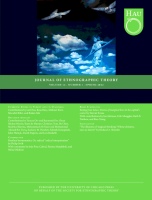
KONOPÁSEK, Z. (2022): Religion in action: How Marian apparitions may become true. HAU: Journal of Ethnographic Theory, 12 (1): 170–183
::::According to Latour, religion and science have nothing in common. The two are successful (or failing) in quite different ways. Religiousness is not aimed at fact-making, but at presence-making, he says. To critically reconsider these ideas, I discuss the case study of Marian apparitions in Litmanová. The study suggests a more complicated picture by not focusing on pure and ready-made religion, but rather on religion in the making, a kind of “almost-religion.” It shows how the reality of apparitions, initially of quite unclear status, was becoming more and more religious. Fact-making and fact-checking clearly belonged to this trajectory and have never stopped being relevant. Nonethless, together with how the apparition was progressively becoming truly religious (or religiously true), Latourian presence-making was gaining in importance.
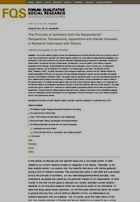
KONOPÁSEK, Z. / PALEČEK (2011): The principle of symmetry from the respondents’ perspective: Possessions, apparitions and mental illnesses in research interviews with clerics. Forum Qualitative Sozialforschung / Forum: Qualitative Social Research, 12 (1): čl. 12, http://nbn-resolving.de/urn:nbn:de:0114-fqs1101129
::::We study how experiences such as hearing the voice of the Lord or having a vision of Virgin Mary are dealt with in psychiatry and catholic pastoral practice. How the status of these phenomena is negotiated by the participants? Under what conditions they become an instance of legitimate religious experience or, alternatively, symptoms of mental illness? We approach the study of these issues “symmetrically” - we do not prefer a priori medical or spiritual explanations. Some time ago, we demonstrated and explained such an approach (which is common, e.g., in contemporary sociology of science), and its relevance for our research, in an analytic paper on the movie “The exorcism of Emily Rose” (2005). The paper discusses a highly ambiguous relationship, pictured in the film, between medical and spiritual interpretation of the story of a young girl who was considered possessed by demons and who died after unsuccessful exorcism (Konopásek & Paleček 2006). Now, the question is: can such a symmetrical approach be of any relevance also for people we are studying? In an attempt to give an answer, we have interviewed four catholic priests on this issue. The priests had been asked to watch the movie on Emily Rose and read our paper on it in preparation for the interview. Based on these discussions (and also on our current research in general), we would like to shed some light on whether and in what ways our specific epistemic perspective coheres with the views and positions of our respondents; and also, how this reflexive research experiment contributed to our own understanding of the role of the symmetry principle in our current research project.
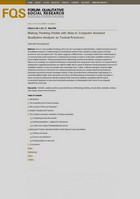
KONOPÁSEK, Z. (2008): Making thinking visible with Atlas.ti: Computer assisted qualitative analysis as textual practices. Forum Qualitative Sozialforschung / Forum: Qualitative Social Research, 9 (2): 62 odst., čl. 12. Dostupné na adrese http://nbn-resolving.de/urn:nbn:de:0114-fqs0802124
::::How is a new quality of reading, which we call "sociological understanding", created during the process of qualitative analysis? A methodological (conventional) answer to this question usually speaks of mental processes and conceptual work. This paper suggests a different view—sociological rather than methodological; or more precisely a view inspired by a contemporary sociology of science. It describes qualitative analysis as a set of material practices. Taking grounded theory methodology and the work with the computer programme Atlas.ti as an example, it is argued that thinking is inseparable from doing even in this domain. It is argued that by adopting the suggested perspective we might be better able to speak of otherwise hardly graspable processes of qualitative analysis in more accountable and instructable ways. Further, software packages would be better understood not only as "mere tools" for coding and retrieving, but also as complex virtual environments for embodied and practice-based knowledge making. Finally, grounded theory methodology might appear in a somewhat different light: when described not in terms of methodological or theoretical concepts but rather in terms of what we practically do with the analysed data, it becomes perfectly compatible with the radical constructivist, textualist, or even post-structuralist paradigms of interpretation (from which it has allegedly departed by a long way). (Reprinted from Historical Social Research 2007)
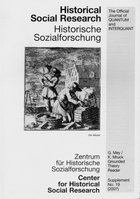
KONOPÁSEK, Z. (2007): Making thinking visible with Atlas.ti: Computer assisted qualitative analysis as textual practices. Historical Social Research, Supplement: Grounded Theory Reader (edited by Günter Mey and Katja Mruck), 19: 276-298
::::Článek se zabývá tím, jak se vlastně objevuje nová kvalita čtení, které běžně říkáme "sociologické porozumění". Vyhýbá se přitom zaužívanému metodologickému pohledu na věc, podle kterého zde hrají hlavní úlohu myšlenkové procesy a konceptuální práce. Razím zde jiný pohled, ne metodologický, ale sociologický; přesněji vzato, pohled inspirovaný současnými vědními studii (STS). Líčím kvalitativní analýzu jako soubor materiálních praktik. Na příkladu "empiricky podložené teorie" (grounded theory) a práce s počítačovým programem Atlas.ti ukazuji, že a jak je analytické uvažování neoddělitelné od praktického konání, od nejrůznějších manipulací s textem. Tvrdím, že pokud takový úhel pohledu přijmeme, lépe budeme schopni o jinak dost neuchopitelných "metodách kvalitativní analýzy" mluvit vykazatelným a návodným způsobem. Počítačové programy pro kvalitativní analýzu by z tohoto hlediska také nemusely být chápány jako "pouhé nástroje" pro kódování a vyhledávání, ale jako komplexní virtuální prostředí pro vtělené a prakticky založené poznávání. V neposlední řadě potom můžeme vidět v jiném světle i metodologii vytváření "empiricky podložené teorie": pokud ji přestaneme popisovat metodologicky-teoreticky, ale spíš jako postupy, jimiž praktického zacházení s texty dat, stane se tato údajně konzervativní a beznadějně moderní metodologická škola krásně slučitelná s radikálním konstruktivismem či post-strukturalismem.
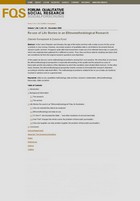
KONOPÁSEK, Z. / KUSÁ, Z. (2000): Re-use of life stories in an ethnomethodological research. Forum Qualitative Sozialforschung / Forum: Qualitative Social Research, 1 (3): 42 odst, čl. 24. Dostupné na adrese http://nbn-resolving.de/urn:nbn:de:0114-fqs0003248
::::In the Czech Republic and Slovakia, the age of life history archives with a wider access for the social scientists is only coming. However, secondary analysis of qualitative data is not limited to documents that are stored in public archives. It happens quite often that researchers make use of an interview transcript, or a part of it, which has originally been gathered for a different occasion. Thus, they use these data for studying new topics that are sometimes far from the original research questions and objectives. In this paper we discuss some methodological problems arising from such practice. We show that, on one hand, the ethnomethodological perspective is especially demanding on the quality and the pinpoint accuracy of transcripts and the descriptions of the interviews by which the narratives were elicited (field memos). On the other hand, however, the ethnomethodological perspective orients scholars to formulate their research objectives according to what the data itself offers. The methodological problems related to the re-use of data can hardly be resolved in advance and on a general level.
KONOPÁSEK, Z. (1996): Sociologie jako power play. Sociológia, 28 (2): 99-125
::::The presented essay has been inspired by numerous writers who have one thing in common: they distrust of conceptual dualisms and incommen-surabilities that lie behind the modern social science thinking. That is why the dividing lines between knowledge and power, sociology and society, methods and ethnomethods, or truth and falsity are not approached here as part of the solution (as a resource of explanations) but as part of the problem (as things to be explained). It is argued that sociologists construct the authoritativeness of their knowledge in such a way that they arrange a power play, a plain superiority in numbers. They do so deftly and unnoticeably, yet unwittingly, under the guise of ascetic recluses distanced far away from ordinary life. The argument is illustrated by the case of "objective hermeneutic", a qualitative research strategy of German origin, used typically within so called biographical research. I claim that the case of objective hermeneutic (and the case of qualitative methodologies in general) is only particularly obvious and vivid demon-stration of what is much less obvious and visible elsewhere, throughout the field of social science.

 ? - recenze vyjde v časopise Biograf
? - recenze vyjde v časopise Biograf
 se objevily informace o tom, co lze snad prý během března čekat v nové, sedmé verzi mého oblíbeného analytického programu
se objevily informace o tom, co lze snad prý během března čekat v nové, sedmé verzi mého oblíbeného analytického programu





